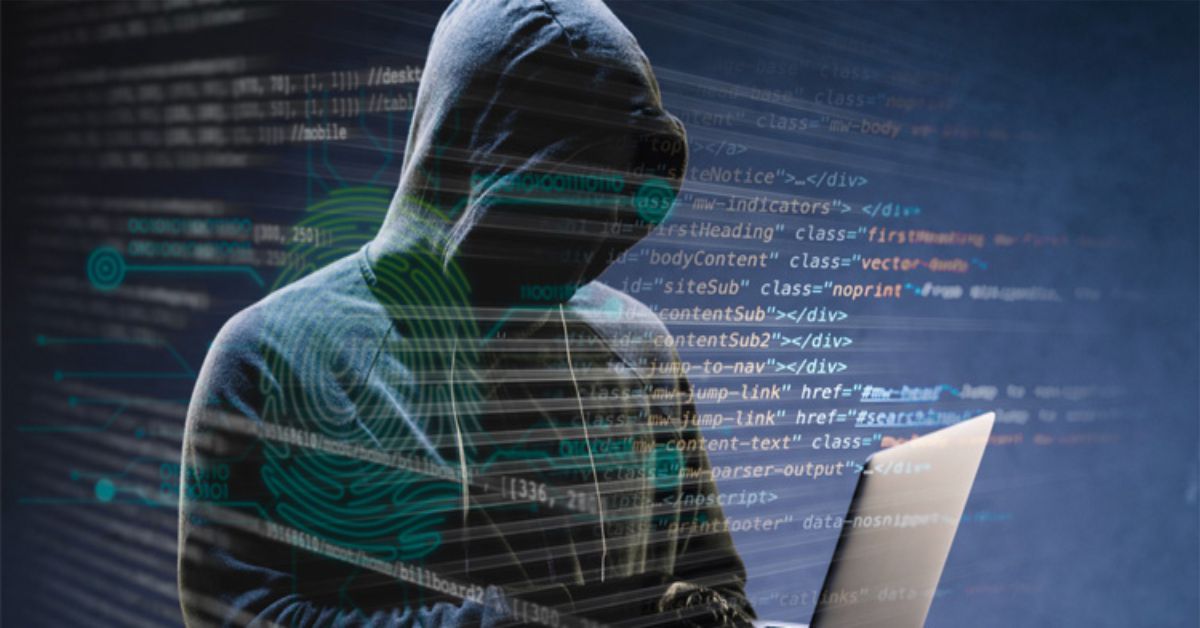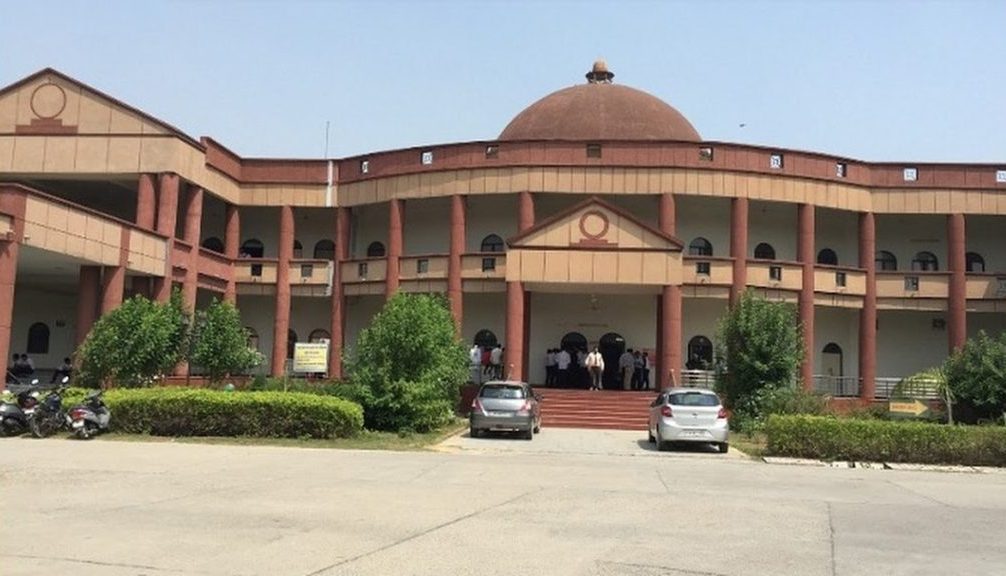CYBER CRIME CASES IN INDIA

Cybercrime is distinct from other forms of crime due to its lack of geographical constraints and the anonymity of its perpetrators. It impacts a wide range of stakeholders, including governments, businesses, and citizens. In India, the rise in cybercrime correlates with the growing utilization of information and communication technology. This article aims to provide a concise overview of cybercrime, explore its various types, discuss relevant amendments, and analyze the current state of cybercrime in India and its solutions. Additionally, it will propose measures to combat cybercrime within the country. Cybercrime encompasses a wide array of criminal activities that utilize computers or computer networks as tools, targets, or venues for illicit actions. This term includes offenses such as electronic fraud, denial of service attacks, phishing, credit card fraud, bank theft, illegal downloading, industrial espionage, child exploitation, online scams, cyber terrorism, and the creation or distribution of malicious software, among others.
Cybercrime in India has seen a significant rise over the past decade, driven by increasing internet penetration, widespread use of smartphones, and rapid digitalization across sectors. The types of cybercrimes range from financial fraud and data breaches to cyberstalking and ransomware attacks.
Nowadays, people and businesses are being scammed and tricked online a lot. Cybercriminals are always coming up with new ways to trick people. Advocate AK Tiwari, a renowned legal expert, gives valuable insight into how to protect yourself from these online threats and what legal options are available for victims. Online frauds and scams come in many forms, including identity theft, credit card fraud, and phishing attacks. Criminals use emails, social media, and websites that look good to trick people into giving them personal and financial information. Once you get this information, you can use it to steal money, do bad things, or sell it on the dark web.
Advocate AK Tiwari says that it is important to keep an eye out for online fraud. He says to be careful when sharing personal information online and check if the message is real. Using strong, unique passwords for different accounts and turning on two-factor authentication can also add extra security.
Businesses need to put in place strong security measures. This means updating software, conducting security audits, and teaching employees about common online threats. Advocate AK Tiwari suggests that businesses have a clear plan for responding to cyber attacks (such as Online Frauds, Online Scams, Cyber Scams, Internet Fraud Police, Money Scams Online, Cyber Frauds, Internet Frauds, Digital Banking Fraud, Digital Payment Fraud, New Online Scams) to reduce the impact. If someone tries to trick you on the internet, it's important to act quickly. Tell the police and your bank or financial institution about the problem. Keep any proof of the scam because it can be important in court.
In conclusion, while the digital world is full of conveniences, it also comes with risks. Keeping up with online frauds and scams is important. Advocate AK Tiwari is a valuable resource for both individuals and businesses.
Why is India Vulnerable to Cybercrime?
India is vulnerable to cybercrimes due to several factors:
- Rapid Digitalization: India has experienced significant digital transformation in recent years, with a growing number of individuals and businesses relying on the Internet and digital technologies. The increased connectivity and reliance on technology create more opportunities for cybercriminals to exploit vulnerabilities.
- Large Internet User Base: India has one of the largest Internet user bases globally. With a large population using the internet, there are more potential targets for cybercriminals, making it a lucrative market for cyberattacks.
- Lack of Awareness: Many people in India are not fully aware of the risks associated with using the internet and digital devices. Lack of awareness about cyber threats and best cybersecurity practices leaves individuals and businesses more vulnerable to attacks.
- Inadequate Cybersecurity Infrastructure: The cybersecurity infrastructure in India is still developing. Many organizations, especially smaller businesses, may not have robust cybersecurity measures in place, making them easy targets for cybercriminals.
- Weak Legal Framework: While India has laws and regulations to address these issues, the legal framework is continuously evolving, and enforcement may be challenging at times. This can lead to delays in prosecuting cybercriminals effectively.
- Technological Advancements: As technology advances, so do cyber threats. Cybercriminals constantly find new ways to exploit vulnerabilities in software, hardware, and network systems.
- Insider Threats: Insider threats, where employees or individuals with access to sensitive information misuse it for malicious purposes, are a significant concern in India, particularly in the corporate sector.
- Payment Systems Vulnerability: With the rise of digital payments and online transactions, there is an increased risk of financial crimes such as phishing, credit card fraud, and online scams.
- Cross-Border Challenges: Cybercriminals can operate from anywhere in the world, making it challenging to apprehend and prosecute them, especially if they are located in jurisdictions with weak cybersecurity laws.
Here are some cases of digital arrests in India :
- Bulli Bai App Scandal (2022): In January 2022, a digital arrest was made in connection with the Bulli Bai app, an online platform that targeted and harassed Muslim women by posting their images for "auction."
- Andhra Pradesh Loan App Scams (2020-2021): In late 2020 and early 2021, multiple loan apps in Andhra Pradesh and Telangana were involved in extortion and harassment.
- 2020 Mumbai Power Grid Attack: In October 2020, there was a massive power outage in Mumbai, which affected millions of people. Investigations later revealed that the blackout was caused by a cyberattack on the state’s power grid, believed to have been orchestrated by foreign hackers.
- Sextortion Scam, Gurgaon (2021): In 2021, a digital arrest was made when a sextortion racket was busted in Gurgaon. The gang used fake social media accounts and video calls to lure victims into compromising situations.
- Crypto Fraud Scandal (2021): In a high-profile cryptocurrency fraud case in India, several individuals were arrested for their role in duping investors through fraudulent cryptocurrency trading platforms.

A Digital Arrest Lawyer in Noida Can Help You Protect Yourself
In the digital age, cyber scams have become more sophisticated and pose a challenge for both individuals and businesses. One such alarming trend is the rise of digital arrest scams, where cybercriminals pretend to be law enforcement to get money or personal information from victims. In Noida, AK Tiwari and Associates has emerged as a leading law firm offering legal services to fight these digital arrest scams.
AK Tiwari and Associates understand the complicated nature of online scams. Their knowledge of cyber law helps them deal with cases of digital arrest scams. They help victims get justice and protection they deserve. AK Tiwari and Associates are known for being professional and dedicated. They work hard to make sure their clients' rights are protected.
Victims of digital arrest scams often have to deal with threats and demands for money. AK Tiwari and his team approach each case with care and precision. They work hard to get evidence, build a strong defense, and challenge the claims of cybercriminals. They aim to bring those responsible to justice and help their clients move forward without fear.
AK Tiwari and Associates also offer advice to help people and businesses avoid becoming victims of digital scams. They teach their customers how to recognize dangers, keep personal information safe, and handle suspicious behavior.
Choosing AK Tiwari and Associates means choosing a team that knows a lot about law and cares about their clients. If you're facing a digital arrest scam in Noida, AK Tiwari and Associates will help you. They are the go-to legal experts for digital scam-related issues in Noida because of their commitment to justice and client welfare.
How to recover money in cyber fraud cases ?
Cyber scams and internet fraud have become common threats that affect individuals and businesses alike. AK Tiwari, an experienced lawyer, talks about online crimes and how the police can help stop them. Cyber scams include things like phishing attacks, identity theft, online shopping scams, and ransomware. These scams are designed to trick victims into giving up personal or financial information, which is then used by cybercriminals. With these scams constantly evolving, it is important to stay alert and informed.
Advocate AK Tiwari says that awareness and taking steps to protect yourself from cyber scams are important. He says to be careful when sharing personal information online and check if websites or emails are real before talking to them. Using strong, unique passwords and two-factor authentication can make your online security much better.

Recovering money lost to cybercrime in India requires quick action and adherence to specific steps. Here's a guide on how to proceed:
1. Immediate Actions to Recover Money
a. Report to the Bank or Payment Platform
- Contact your bank, payment wallet, or UPI platform (e.g., Paytm, Google Pay) immediately.
- Provide details of the transaction, such as:
- Transaction ID
- Amount involved
- Date and time of the fraud
- Any related messages or emails.
- Request the bank to freeze the transaction and investigate.
b. Call the Cyber Crime Helpline (1930)
- Dial 1930, the government’s dedicated helpline for financial cyber fraud.
- Provide details about the fraudulent transaction.
- The helpline will alert the recipient’s bank to freeze the fraudulent account if the funds haven’t been withdrawn.
2. Report the Crime
a. File a Complaint on the Cybercrime Portal
- Visit the National Cyber Crime Reporting Portal (gov.in).
- Select the “Report Financial Fraud”
- Fill out the complaint form with all relevant details:
- Bank details
- Screenshots of the transaction
- Fraudulent links or messages.
b. Lodge an FIR
- If the amount is substantial or involves identity theft, file an FIR at the nearest police station or the cybercrime cell.
- You can also request the police to invoke relevant sections of the IT Act and Indian Penal Code (IPC).
3. Track the Progress
- Follow up with your bank, the helpline, and law enforcement agencies regularly.
- Keep all communication records, such as emails and complaint numbers, for reference.
4. Seek Legal Support
- If the money is not recovered or if the case becomes complex:
- Engage a cybercrime lawyer to assist with legal remedies.
- File a case in a consumer court if the fraud involves negligence by a financial institution.
- Under Section 43A of the IT Act, you may claim compensation if negligence is proven.
5. Additional Tips
- Act quickly: The faster you report, the higher the chances of freezing fraudulent transactions.
- Be persistent: It may take time, but consistent follow-up increases recovery chances.
- Use government and RBI guidelines: Banks and payment platforms are required to assist victims under RBI regulations.

Expert Advice From Advocate AK Tiwari on
How To Stay Safe Online
The Internet fraud police play an important part in fighting cyber crimes. These special groups have the knowledge and tools to find and punish people who do bad things online. They work hard to find the people who did it, recover the stolen assets, and stop more fraud. Reporting suspicious activities to the internet fraud police can stop scams from spreading and catch those responsible.
Advocate AK Tiwari also says that it's important to get legal help for victims of cyber scams. Reporting incidents to the authorities and getting legal advice can help you recover losses and hold cybercriminals accountable. Advocate AK Tiwari helps victims navigate cybercrime cases and make sure that their rights are protected. In conclusion, cyber scams and internet fraud continue to rise, so it's important to stay informed and take preventive measures. The police and lawyers like Advocate AK Tiwari are important partners in fighting against cybercrime. They help victims and give them advice and justice.
Advocate’s assist on Cyber Crime in India:
An advocate in India can be instrumental in identifying, reporting, and pursuing cybercrime cases, ensuring justice for victims while helping law enforcement agencies effectively deal with cybercriminals. Here's how an advocate can assist:
1. Educating and Assisting Victims
- Guiding Victims: Advocates can educate victims about their rights and the legal remedies available under Indian laws, such as the Information Technology (IT) Act, 2000, and the Indian Penal Code (IPC).
- Drafting Complaints: Advocates can help draft clear and precise complaints for submission to:
- Cybercrime cells or local police stations.
- Platforms like banks, social media, or e-commerce companies.
2. Filing and Pursuing Legal Action
- Registering FIRs: Advocates ensure that an FIR is filed correctly under the appropriate sections of the IT Act and IPC.
- Legal Representation: They represent victims in courts to ensure the perpetrators are prosecuted and justice is served.
- Compensation Claims: Advocates can help victims claim compensation for losses under Section 43A of the IT Act in cases involving data breaches or negligence.
3. Collaborating with Authorities
- Guiding Law Enforcement:
- Assist police and cybercrime units in understanding legal procedures and ensuring proper framing of charges.
- Help ensure admissibility of digital evidence by following procedural requirements under the Indian Evidence Act, 1872.
- Tracking Cybercriminals:
- Advocates can work with forensic experts to trace cybercriminals using IP addresses, transaction records, and other digital footprints.
- They can help identify jurisdictional issues, especially in cross-border cybercrime cases.
4. Ensuring Due Process
- Rights of the Accused: Advocates protect the rights of all parties, ensuring investigations follow legal protocols, preventing arbitrary arrests or detentions.
- Monitoring Digital Evidence Collection: Advocates ensure digital evidence, such as emails, logs, and metadata, is collected and handled as per legal standards to avoid dismissal in court.
5. Raising Awareness and Preventing Cybercrime
- Workshops and Seminars:
- Conduct awareness programs on online safety, phishing, and fraud prevention.
- Educate the public on laws and how to report cybercrimes effectively.
- Training for Organizations:
- Advise companies on compliance with cybersecurity laws.
- Help draft robust data protection policies and incident response strategies.
6. Litigation and Advocacy
- Criminal Cases: Advocates pursue cases involving cyberstalking, hacking, financial fraud, or defamation.
- Civil Cases:
- Handle cases related to data breaches, privacy violations, or intellectual property infringement.
- File suits for damages in consumer courts if negligence by an institution is involved.
7. Policy Contribution
- Advising Policymakers: Advocates with expertise in cyber law can contribute to improving legislation by identifying loopholes and suggesting amendments.
- Promoting International Cooperation: Advocates can assist in cases involving international cybercrime by leveraging treaties like the Budapest Convention or mutual legal assistance treaties (MLATs).
8. Cybercrime Prevention Strategies
- Evidence Preservation: Advocates guide victims and organizations in preserving digital evidence, such as screenshots, emails, and transaction logs, which are crucial for investigation and prosecution.
- Strengthening Cybersecurity: For businesses, advocates can ensure compliance with data protection laws and implement risk mitigation strategies.

